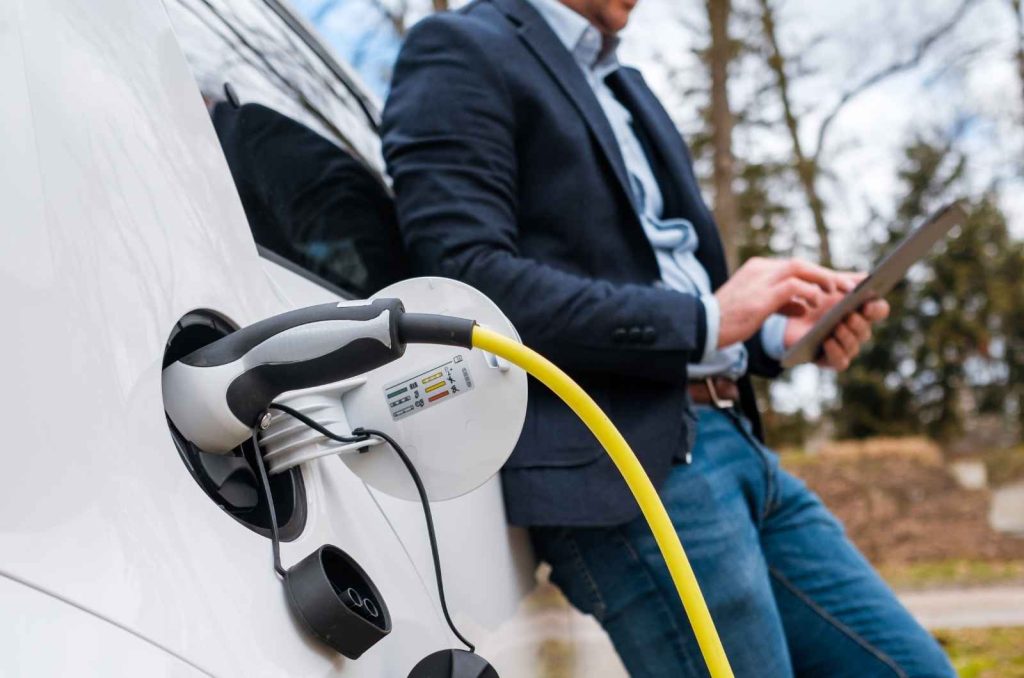
Imagine a world with cleaner air, fewer greenhouse gas emissions, and more efficient transportation systems. This may seem like a dream, but as we embark on the journey towards a greener future, electric fleets are emerging as a game-changing solution. They not only offer numerous environmental and economic benefits, but also pave the way for a more sustainable future. However, embracing electric fleets requires overcoming current challenges like charging infrastructure, driver education, and regulatory hurdles. As we unwrap the unexplored potentials of electric fleets, let's look at the benefits they bring to the table and the solutions to overcome the challenges they face.
The Rise of Electric Fleets
Electric fleets are gaining momentum in the transportation industry, offering a greener alternative to traditional vehicles powered by fossil fuels. This shift is a major step in reducing carbon emissions and combating climate change, as electric vehicles (EVs) produce zero direct emissions. Consequently, they help improve air quality, particularly in urban centers. Various sectors are adopting electric fleets, including public transportation services, and logistics companies.
Transitioning to electric fleets yields significant economic benefits, such as lower maintenance expenses and operational savings. Electric vehicles require fewer mechanical parts and oil changes, which reduces overall servicing costs. Furthermore, electric fleets enjoy fuel price stability, given their independence from volatile oil prices. Companies committed to incorporating electric fleets not only demonstrate their environmental stewardship but also reap the financial rewards of this transition.
Benefits of Fleet Charging
The advancement of fleet charging systems is an essential component for the adoption and success of electric vehicle fleets. One of the foremost benefits of efficient fleet charging is its ability to reduce carbon footprint, making a significant positive impact on the environment. By using electric vehicles and incorporating effective charging strategies, companies can minimize their ecological footprint and contribute to a greener future.
Another key advantage is the substantial cost savings that fleet charging offers businesses. The operational cost of maintaining electric vehicles is typically lower than that of conventional fossil fuel-powered vehicles. This translates to financial benefits in the long run. Numerous businesses who have implemented fleet charging have reported improved productivity, optimized routes, and substantial reductions in overall expenses.
A major convenience factor of fleet charging is the minimized waiting time for drivers during charging sessions. With a well-planned charging infrastructure in place, drivers can effectively plan their routes and schedules, keeping the vehicles in constant circulation and further reducing operational costs.
Challenges to Fleet Charging
As organizations increasingly adopt electric fleets, they might encounter several challenges in setting up effective charging infrastructure. First and foremost, finding a cost-effective solution can be complex, given factors such as taxes, electricity demand charges, and the need to evaluate potential energy storage options. Companies must also carefully plan the infrastructure layout, particularly when operating larger fleets, to prevent inefficiencies or bottlenecks in the charging process.
Another notable challenge lies in driver behavior, education, and awareness. To ensure the success of electric fleets, drivers must be well-informed about proper charging practices and time management. In addition, the lack of charging stations during long journeys can pose difficulties for fleet drivers in maintaining a steady driving schedule.
In summary, while fleet charging offers numerous benefits, it also presents some challenges, including cost-effectiveness, infrastructure planning, driver education, and the availability of charging stations. In the next section, we will discuss potential solutions to combat these obstacles and pave the way for a greener future.
Solutions to Fleet Charging Challenges
Overcoming the challenges of installing and managing a fleet charging infrastructure requires a combination of innovative technologies and supportive policies. One practical solution is to place charging stations close to company facilities, ensuring their accessibility to drivers. Additionally, the integration of smart grids can enable efficient energy distribution during peak and off-peak hours, reducing electricity demand charges while meeting the fleet's charging needs.
Incorporating renewable energy sources, such as solar or wind power, enhances the environmental benefits of fleet charging. Vehicle-to-grid technology also shows promise, creating a win-win situation for businesses and utilities by allowing charged vehicles to store and release energy as needed. This reduces pressure on the grid and helps stabilize energy demand.
Educating drivers about the benefits and operation of electric vehicles is essential to ensure seamless integration and widespread adoption. Finally, to foster a supportive environment for fleet charging, it is crucial to remove regulatory barriers and enact policies that incentivize the adoption of electric vehicles and charging infrastructure. By implementing these solutions, businesses can build robust, efficient, and sustainable fleet charging systems that contribute to a greener future.
for more info:
